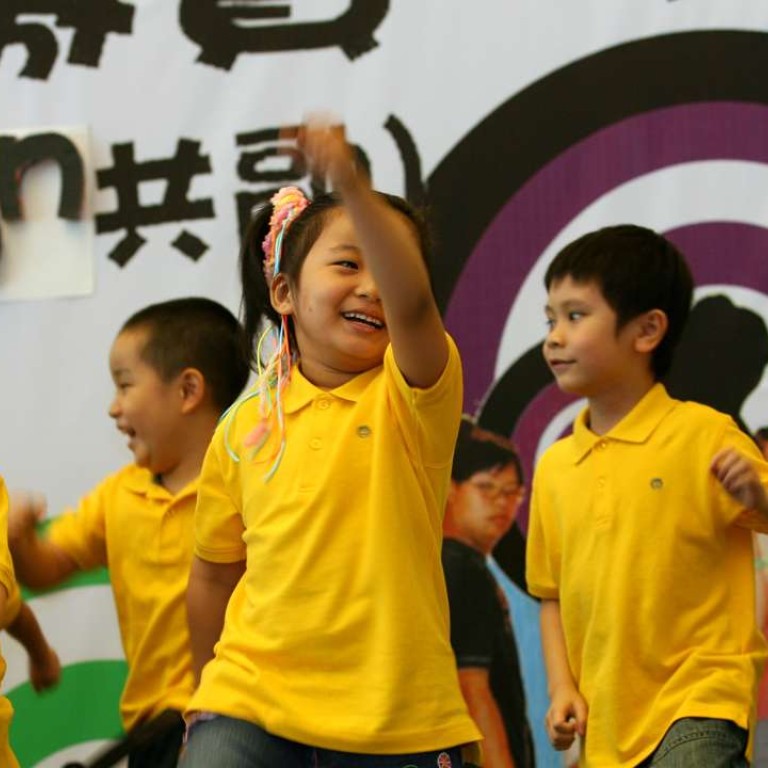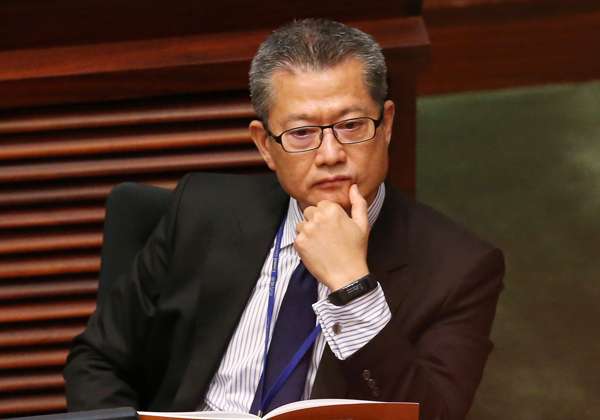
Exclusive | Hong Kong’s 12th fiscal surplus to fund education, innovation and a salaries tax rebate
Paul Chan expected to post HK$80 billion surplus when he delivers his first government budget this week in his new job as city’s top finance official
Financial Secretary Paul Chan Mo-po will unveil a package of incentives to nurture education in Hong Kong and promote innovation and technology, as well as offer a salaries tax rebate when he delivers the government’s budget on Wednesday.
Watch: Why the Hong Kong government has so much money saved up
Chan, delivering his first budget as the city’s top finance official, will post an HK$80 billion budget surplus, far exceeding the forecast HK$11 billion, due to record land sales revenue mainly created by mainland capital, according to a person familiar with the city’s finances.
The budget may be Chan’s single shot at directing fiscal spending in the direction of his public finance philosophy and policy agenda, said the source. Chan’s tenure will expire on June 30 if he is not appointed by the incoming chief executive after an election for the city’s top job on March 26.

Chan’s spending priorities will be a departure from those of his predecessor, John Tsang Chun-wah, whose fiscal goodies in the last budget were derided by critics as being too conservative.
Hong Kong’s currency reserves have ballooned to HK$908.3 billion, even as the city’s economy struggles with a slump in tourism receipts.
Hong Kong residents will get a tax rebate on salaries in the 2017-18 financial year similar to last year’s package, to boost domestic consumption and cushion the downturn in tourism revenue, the source said.
Last year, the government cut salaries tax and tax under personal assessment by 75 per cent with a ceiling of HK$20,000, which benefited almost two million taxpayers including 200,000 people who completely slipped out of the tax net.
Education will be a major spending area, with plans to extend a programme to provide free kindergarten attendance for all children, the source said.
Last year, the government made 80 per cent of half-day kindergarten classes in the city free.
But residents should not expect another cash handout, any subsidies on electricity tariffs or exemptions from public housing rents, the source said. Tsang oversaw a one-time cash “sweetener” of HK$6,000 per resident handed out in the 2011-12 financial year.
Billy Mak Sui-choi, an associate professor at Baptist University, said the city should not rely on one-off relief measures to boost the economy, and government funds would be best used to help those badly in need.
“Only the middle class are qualified for substantial tax rebates, but those people won’t suddenly increase their spending because they receive extra sums of money” because they had established consumption patterns, Mak said.
Younger residents, typically a major force in spending, had not earned enough to be major beneficiaries of the rebates, he added.
The government’s approach to tourism will be more along traditional lines in the form of subsidies to the Tourism Board instead of funding for food trucks, which Tsang unveiled last year.
Writing in his weekly blog, Chan said a site at the former Kai Tak airport site had been sold at a price 87 per cent above the higher end of market expectations, contributing to the surplus.
Before throwing his hat into the ring to be Hong Kong’s next leader, Tsang unveiled a HK$38.8 billion package of fiscal goodies for the city’s residents, including a HK$2 billion innovation and technology fund to match investments by private-sector venture capital in local start-ups.
His political critics, however, said Tsang had been too conservative with his spending.
They have pointed to Hong Kong’s showing in surveys as one of the 10 most unequal economies in the world, even as the city remained the world’s freest economy for 23 years running, according to the right-wing Washington-based think tank the Heritage Foundation.
The uneven showing underscored the need to redistribute government spending towards the needy, Mak said.
“The stock market has been doing well,” he said. “The jobless rate has remained low and people are still seeing an increase in salaries. In general, the size of current relief measures is pretty reasonable.”


